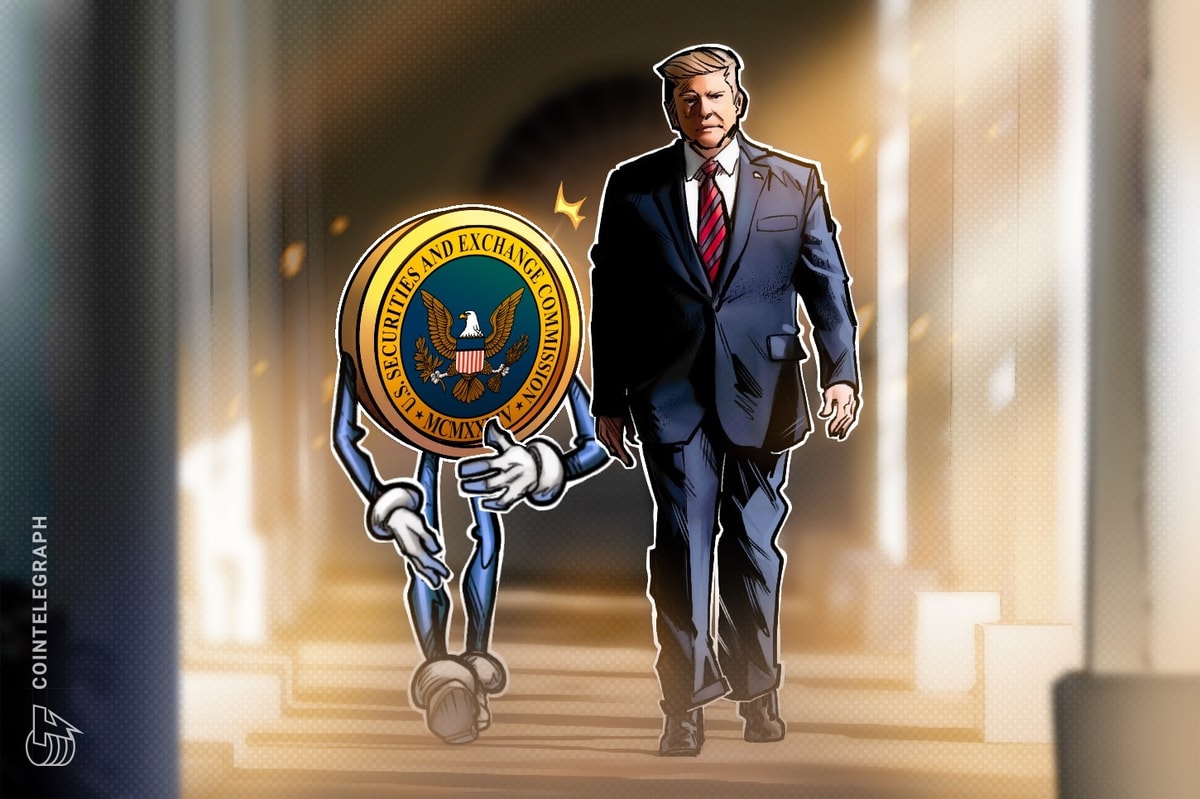The retail-fueled memecoin speculation around the Trump memecoins could invite more regulatory scrutiny on the crypto industry in the US, industry insiders told Cointelegraph.
News
The Trump family’s recently launched memecoins may invite more regulatory scrutiny from the US Securities and Exchange Commission, presenting new challenges for the cryptocurrency space.
President Donald Trump launched the Official Trump (TRUMP) memecoin on Jan. 18 and the Official Melania (MELANIA) token on Jan. 19 on the Solana network, ahead of his presidential inauguration on Jan. 20.
While the memecoins attracted significant retail interest, they may pose regulatory challenges for the wider cryptocurrency industry and draw further scrutiny from the SEC.
The presidential memecoin launch sets a “precedent that could blur the lines between celebrity, politics and finance,” according to Anndy Lian, author and intergovernmental blockchain expert.
This may challenge the SEC’s approach to crypto regulation in 2025, Lian told Cointelegraph:
“The question now is whether the SEC will tighten regulations to curb potential market manipulations or if they will adapt to this new reality by establishing clearer guidelines for such tokens.”
“The risk here is that without stringent oversight, the market could be flooded with similar tokens, potentially leading to volatility, scams, or even undermining the credibility of cryptocurrencies,” Lian said.
While some crypto industry insiders see this as a new era for memecoins, their token allocations have raised red flags among investors, considering that nearly 90% of the Melania token supply was in a single wallet, Bubblemaps said in a Jan. 19 X post.
MELANIA token distribution. Source: Bubblemaps
This is in contrast with the official website shared by Mrs. Trump, which claimed that 35% of the tokens had been distributed to the token’s team, while 20% were allocated to both the treasury and the community, with 15% offered to the public and 10% set aside for liquidity.
Related: Trump’s first week in office: Will crypto regulation take a back seat?
Political memecoins: A legal gray area for the crypto industry
The Trump family’s newly launched memecoins present a unique gray area for US regulators.
While the Trump administration has signaled a more crypto-friendly regulatory stance, similar memecoins present additional challenges, according to Steve Milton, CEO of the Fintopio CeDeFi wallet app and former global vice president of marketing and communication at Binance.
The Trump family memecoins are a “step forward and backward” for the industry, Milton told Cointelegraph.
“The US needs understanding and cooperative regulators to push innovation and competition, and that’s what the new Trump era will usher in,” he said. “But the same person launching a memecoin for expressing support for ideals leads to a growing gray area.”
Memecoin-fueled retail speculation is “precisely the king of activity the SEC is tasked with mitigating,” meaning that this memecoin launch could “exacerbate regulatory uncertainty” in the short term, Milton added.
Related: Solana users hit by delays after Trump memecoins debut
On the bright side, both of the presidential family’s memecoins have attracted new retail investors to the crypto space, according to Ryan Lee, chief analyst at Bitget Research.
The memecoins have invited new “speculative demand and market liquidity,” the analyst told Cointelegraph.
“The launch has also drawn new investors into the space, with many entering via the Moonshot platform, indicating its broad appeal,” he said. “The broader impact suggests that celebrity-backed tokens could reshape market trends, drawing in fresh capital and further integrating blockchain with mainstream audiences.”
TRUMP/USDT, all-time chart. Source: CoinMarketCap
Meanwhile, the TRUMP token is down more than 49% from its peak of $75.35, reached on Jan. 19. The token fell over 24% in the past 24 hours, CoinMarketCap data shows.
Bitcoin in U.S. Reserves: Could It Drive Prices to $500K? Source: YouTube
Magazine: BTC’s ‘reasonable’ $180K target, NFTs plunge in 2024, and more: Hodler’s Digest Jan 12 – 18
This article first appeared at Cointelegraph.com News


